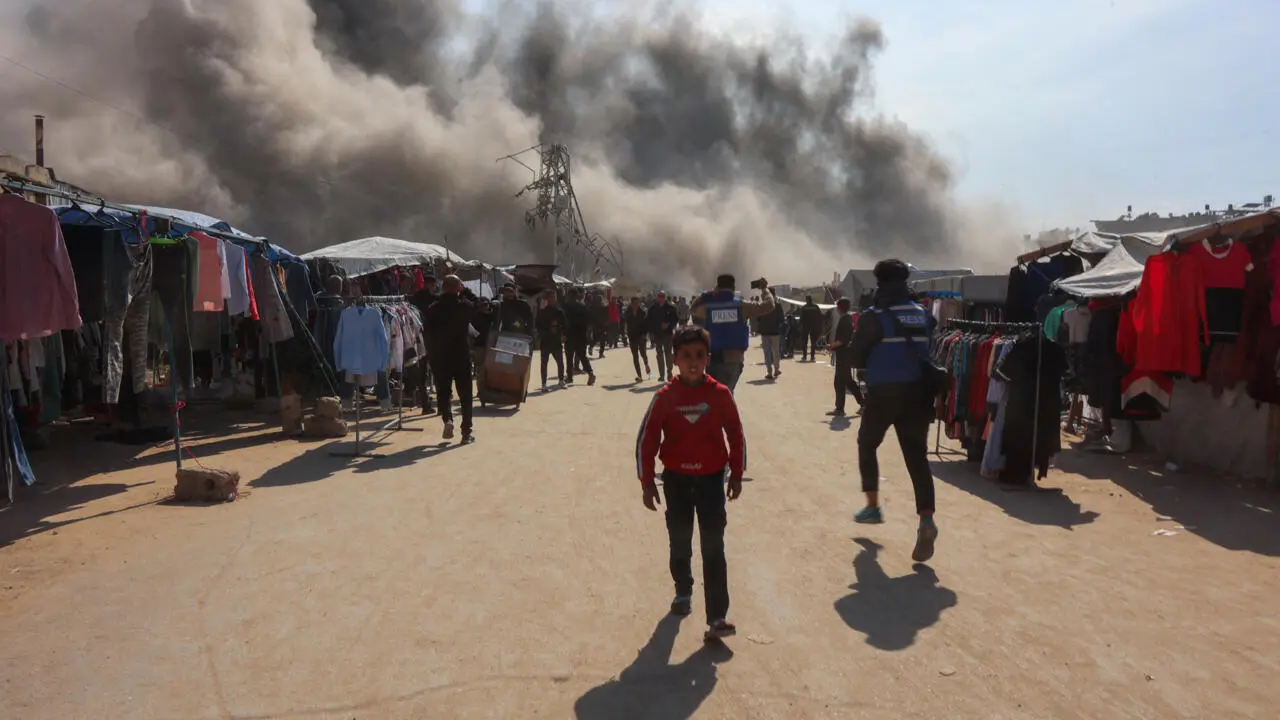Israel’s latest ground offensive in Gaza, launched on May 17, 2025, has plunged the region into a humanitarian catastrophe, with the United Nations warning of an imminent starvation crisis. The operation, targeting Hamas strongholds in northern Gaza, has killed at least 87 Palestinians and displaced 30,000 people in three days, according to Gaza’s health ministry. As Israel pledges to allow a “basic amount” of food aid to prevent famine, global leaders are scrambling to address the escalating violence and dire conditions, raising questions about the feasibility of peace in a conflict that has claimed over 50,000 lives since October 2023.
The offensive began with airstrikes on Jabalia, a densely populated refugee camp, followed by ground incursions. Israeli forces claim the operation aims to dismantle Hamas’s regrouped battalions, accusing the group of using civilians as shields. “We’re targeting terrorists, not innocents,” said IDF spokesperson Colonel Avi Cohen, citing intelligence on Hamas rocket launches. However, the strikes have leveled homes, schools, and a hospital, with rescuers like Ahmed Khalil pulling children from rubble. “There’s nowhere safe,” Khalil told reporters, describing scenes of chaos as families fled south under gunfire.
The humanitarian toll is catastrophic. The UN’s World Food Programme reports that 1.9 million Gazans—90% of the population—face acute food insecurity, with 400,000 at risk of starvation. Israel’s tightened blockade, restricting aid to 300 trucks weekly compared to 500 pre-war, has crippled supplies. A single bakery in Deir al-Balah, serving 200,000 people, shut down on May 18 due to fuel shortages. “We’re eating one meal every two days,” said Fatima al-Najjar, a mother of five in Khan Younis, where prices for flour have surged 600%. The UN Security Council, meeting urgently on May 19, failed to pass a ceasefire resolution, with the U.S. vetoing a draft citing insufficient condemnation of Hamas.
Global reactions are polarized. U.S. Secretary of State Marco Rubio called the Gaza situation “troubling” but affirmed Israel’s right to self-defense, urging Hamas to release 101 hostages held since 2023. France and Spain pushed for sanctions on Israeli settlers attacking aid convoys, while Egypt and Jordan warned of regional destabilization. “This is collective punishment,” said Jordan’s Foreign Minister Ayman Safadi, noting 2 million displaced Gazans crowding Rafah’s border. India, balancing ties with Israel and Arab states, called for “restraint and dialogue,” with Foreign Minister S. Jaishankar offering to mediate.
Hamas, in a surprise move, proposed releasing some hostages in exchange for a 60-day truce, a plan floated during Istanbul talks on May 16. Israel rejected the offer, demanding full disarmament. Critics argue Israel’s strategy—destroying Hamas at all costs—ignores civilian suffering. “The offensive creates more radicals than it eliminates,” said analyst Priya Desai, pointing to Gaza’s 60% youth unemployment and lack of prospects. Others, like retired IDF General Yossi Cohen, defend the operation, arguing that Hamas’s tunnels and rocket caches threaten Israel’s security.
The crisis exposes systemic failures. Gaza’s infrastructure, 70% destroyed since 2023, cannot support its 2.1 million people. Sewage systems have collapsed, raising cholera risks, with 1,200 cases reported this month. Aid agencies face logistical nightmares, with 40% of UN trucks damaged by crossfire. Israel’s promise to allow “basic” food aid—20 trucks daily—falls short of the 100 needed, per Oxfam. “This isn’t relief; it’s a gesture,” said aid worker Mahmoud Abbas, unloading rice in Rafah under drone surveillance.
Diplomatically, the outlook is grim. U.S. President Donald Trump, focused on Ukraine, has delegated Gaza to advisors, with no clear strategy. Qatar and Turkey, key mediators, struggle to bridge Hamas-Israel divides. The Abraham Accords, once a beacon of Arab-Israeli cooperation, are strained, with Saudi Arabia halting normalization talks. “Gaza’s suffering is a regional wound,” said Saudi analyst Khalid al-Saud. India’s neutral stance, while pragmatic, frustrates activists demanding stronger humanitarian advocacy.
Gazans, meanwhile, endure unimaginable hardship. In Rafah, families sleep in tents amid 15°C nights, sharing blankets. Schools, converted into shelters, house 50 people per classroom. “We’re alive, but this isn’t living,” said teacher Noor Hassan. The offensive’s timing, ahead of Ramadan, deepens despair, with markets empty and mosques damaged. Yet, resilience persists, with volunteers distributing salvaged bread and youth organizing blood drives.

